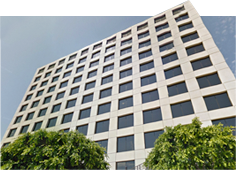Requesting Reconsideration of Immigrant Visa Denials (Part 1 of 2)
There is no worse feeling than being denied a visa after an interview at an embassy or consulate. While applicants denied nonimmigrant visas (such as a visitor, student or temporary worker) are faced with a setback to their short-term plans, those applying for permanent residency (immigrant) visas are in an even tougher position. Often, immigrant visa applicants have waited many years for their turn in line when they attend their embassy interview, whether the immigration is based on a family petition or employment. Immigrant visa applicants often travel far and at great expense to attend the embassy interview, and have made life-altering plans in anticipation of immigrant visa processing.
Clearly, many denials are proper, and immigrant visa applicants face the consequences of their past actions. However, in other situations, denials are issued improperly, and appropriate legal remedies should be considered. While Appeals of embassy denials are typically impossible, a Motion to Reconsider is specifically provided for in the Federal Regulations under 22 C.F.R. Section 42.81. Further, under the 9th Circuit’s recent holding in Rivas v. Napolitano, embassies have a “nondiscretionary, ministerial duty to reconsider” certain decisions following the submission of a request to reconsider.
This is the first of a two-part Article explaining the two general types of embassy immigrant visa denials. The second part is available here. Below, we discuss both “soft refusals” and what can be done following an incorrect embassy “hard denial”. Motion to Reconsider provisions, the consular non-reviewability rule and the effect of the Rivas case all play a role in analyzing a hard denial.
Soft Refusals Under Section 221(g)
First, it is important to point out that there are generally two types of denials. Put simply, there are “hard denials” under Section 212(a) and “soft refusals” under Section 221(g) of the Immigration and Nationality Act (“INA”). A Section 221(g) soft refusal is somewhat analogous to the Request for Evidence (“RFE”) that immigration applicants receive when applying for immigration benefits in the U.S.
A soft refusal essentially means that the Embassy is requesting further documents or must undertake further administrative internal processing of the case. If sufficient documentation is provided or administrative processing is complete, the refusal can be overcome. Typical examples of documents requested can include: tax documents; affidavits of support; job offer confirmation; police certificates; proof of local employment, and court records relating to criminal convictions. The Federal Regulations allow one year for documents to be submitted. If the applicant takes longer than that, she or he will need to reapply for the visa and pay the application fee again.
Hard Denials Under Section 212(a)
Unlike Section 221(g), section 212(a) denials are much more difficult to overcome. The “hard refusal” under Section 212(a) means that a bar to re-entry (“inadmissibility”) applies. Some bars—such as a bar due to a previous overstay or misrepresentation—can be pardoned if a waiver is granted. Some bars are semi-permanent—for example, a bar due to a previous attempt to illegally enter the U.S. after a deportation causes a ten-year hard bar, with a waiver attempt only possible after spending 10 years outside of the U.S. Other bars are simply permanent, with no waiver available—such as a false claim to U.S. citizenship made on or after September 30, 1996.
The determination of whether a bar applies is typically made at the embassy interview by an officer within the Immigrant Visa Unit. As with all laws, the immigration laws leave some room for interpretation. Unfortunately, if an officer’s decision is incorrect, there is little room for argument. According to the doctrine of “consular non-reviewability”, the denial decision cannot generally be appealed. Many applicants and attorneys alike have heard of this doctrine and believe that they have reached the end of the road if a visa is denied. It is thought that either a permanent bar is applied, or a waiver—which may or may not be approved—must be submitted.
However, where new evidence or legal arguments exist, a Motion (request) to Reconsider can be submitted to the embassy. Under 22 C.F.R. Section 42.81, the Motion can be filed, and the embassy must consider the case. Although the regulations permitting a reconsideration have long been in place, only a small percentage of denied visa applicants ever invoke them. While some applicants should not invoke them because there truly exists no legal basis on which to request reconsideration, other legitimate cases do not challenge the bar either because they misunderstand the doctrine of non-reviewability, or because they are pessimistic anything will happen if they ask for reconsideration.
Challenging Visa Denials Under Recent Case Law
In its recent holding in Rivas v. Napolitano, the 9th Circuit Court of Appeals found that “embassies” (to include the Consulate General in Ciudad Juarez, in that case) must issue a decision in response to a Motion to Reconsider. The decision reaffirms the Court’s previous holding in Patel v. Reno, in which it held that while the court cannot compel an officer to grant or deny a visa, it can compel the officer to finally make a decision in a long-pending visa case. Next week, we will discuss Rivas and Patel in more detail, including how these holding may help visa applicants.
An immigrant visa applicant denied under Section 212(a) should discuss their case with an attorney experienced in consular matters. The case must undergo a 4-part analysis: 1) Determine whether the application of the Section 212(a) bar is correct, and if not; 2) Determine whether a Motion to Reconsider is possible, and if not; 3) Determine whether a waiver is available; and if so; 4) Determine the strength of the possible waiver in a given situation.
This is the first of a two-part Article explaining the two general types of embassy immigrant visa denials. The second part is available here.






